By The Horns | September 21, 2022
How we would build this city is a question we have to ask ourselves. But what are we willing to sacrifice to get there?
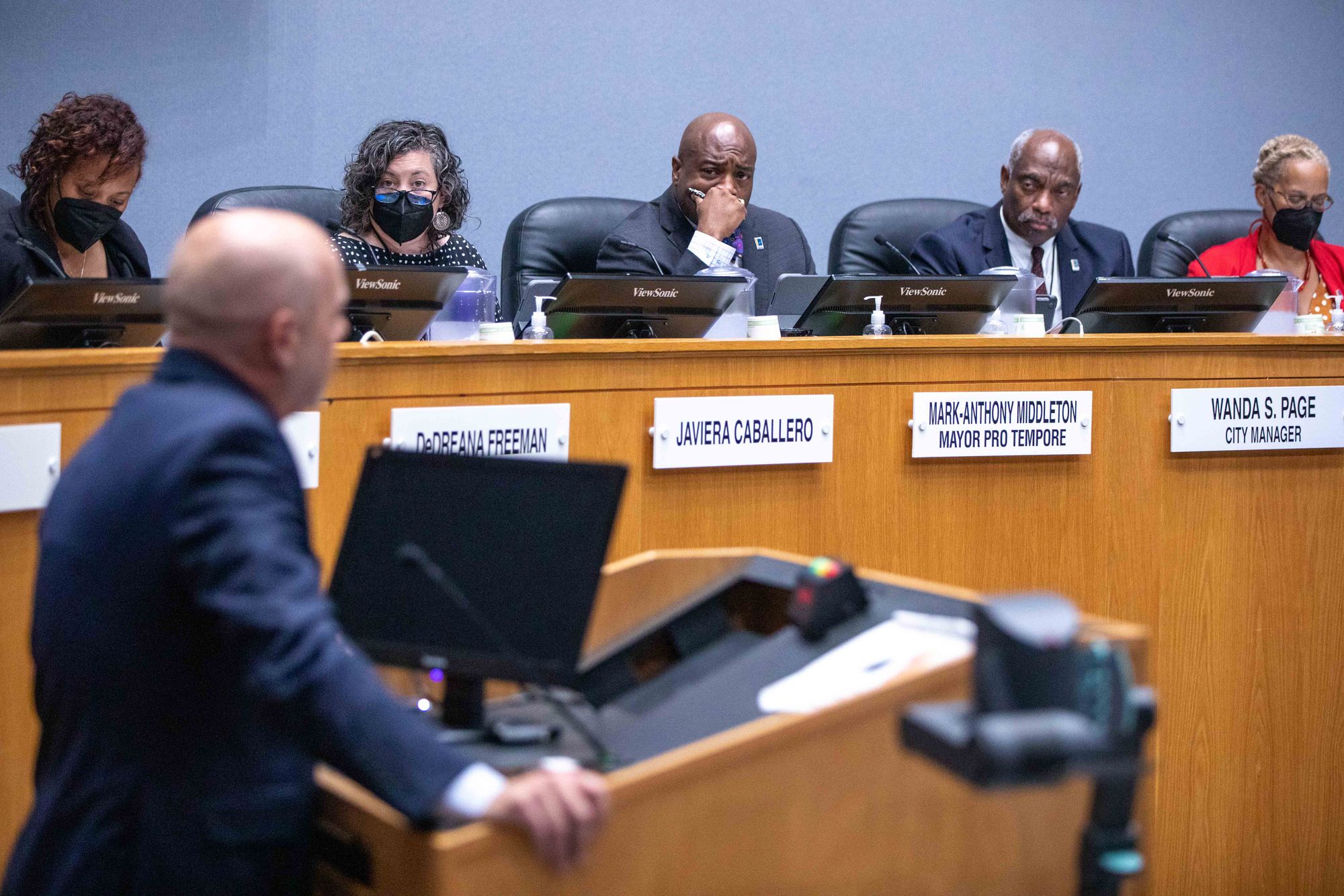
Welcome to the newest edition of By The Horns, a newsletter covering the Durham City Council. This series is intended to help guide those attempting to understand the mechanics of Durham city government, stay informed on issues throughout Durham, and learn the tools necessary to be a more engaged citizen.

The Meeting Agenda for September 19, 2022 can be found here.
By The Horns has been such a joy to work on these last two months. Going to council meetings and listening to the community for hours every other Monday has reinvigorated my belief that Durham can be a wonderful place to live for everyone who wants to call it home if we’re willing to work for it.
As we’ve been learning together, I’ve come to understand that a minute-by-minute recollection of the… minutes… is daunting and omits much of the context that frames Council’s decision-making. Moving forward, I’ll spend less time on the minutiae of the meetings and more attempting to connect threads and propose ideas.
CALL TO ORDER
A Brief Summary of the Meeting
- The City Manager, City Clerk, and City Attorney all received raises. The news came with a brief explanation of the city staff organizational chart from Councilperson Middleton. Council sits at the top of the chart and the three aforementioned employees report directly to council. Here is a more detailed breakdown.
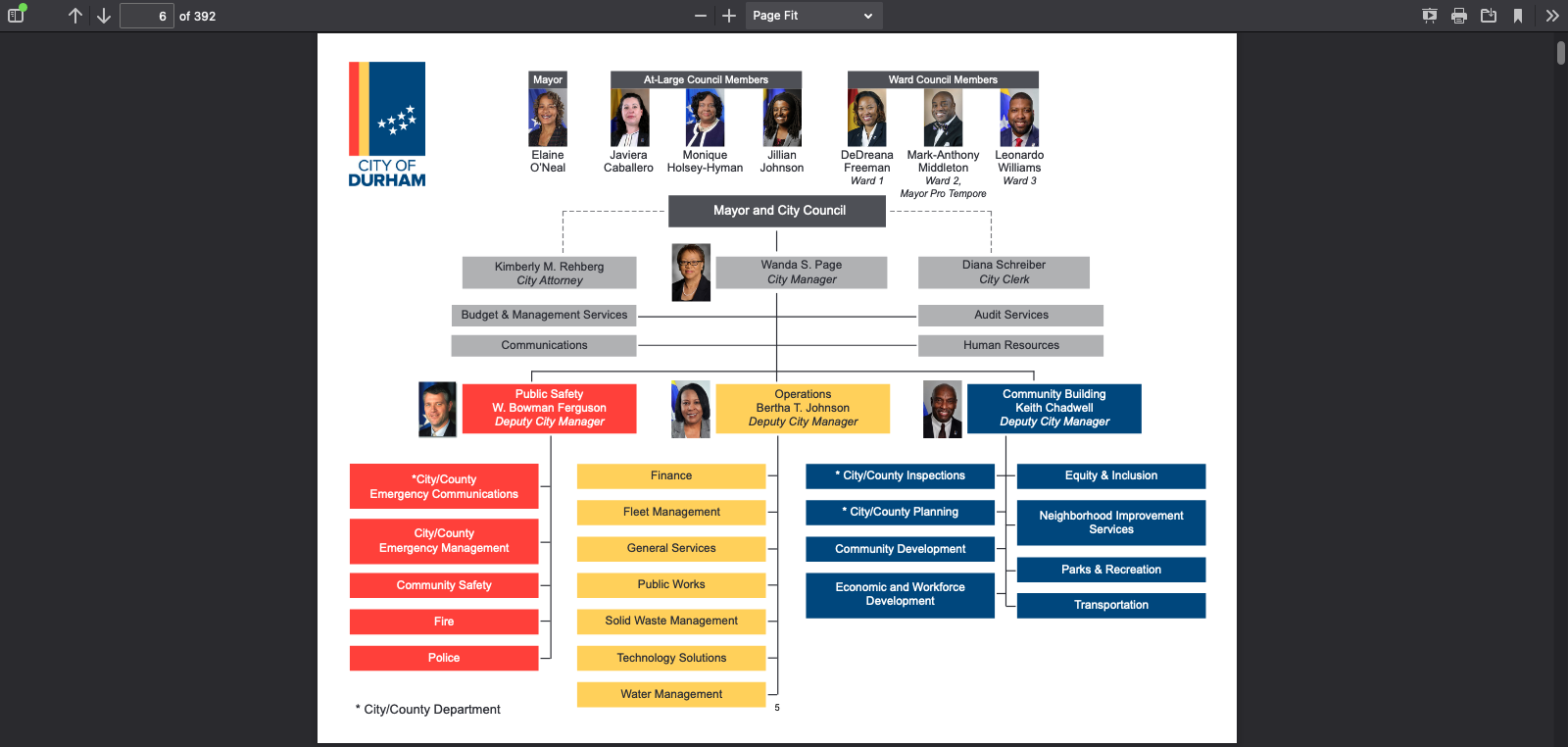
- A member of the community gave an impassioned and at times off-colored speech about the contract renewal for Bull City United and the new contract for ShotSpotter. The speaker alluded to not letting one bad apple ruin the bunch after an outreach worker for Bull City United was recently arrested “for possession with intent to sell and deliver crack cocaine.” They also expressed concerns about the use of ShotSpotter technology. Both contracts were voted yes by council, though some folks in the community and on council remain skeptical of ShotSpotters effectiveness and ethics.
- Two annexations were considered: one in Southeast Durham at 1409 Doc Nichols Road and another near Southpoint at 7926 Massey Chapel Road. Preserve Rural Durham represented in opposition of the Doc Nichols Road proposal for the same reasons they’ve opposed other recent projects. And just like previous meetings, these proposals took up the bulk of the time.
- Two proposed developments already annexed inside city limits were rezoned: Dearborn Drive in the Bragtown neighborhood, and parcels of land at Wabash Street near NCCU. Representing the Wabash proposal at the meeting were Floyd McKissick III and his father, former State Senator Floyd McKissick Jr. Floyd McKissick Sr. was a prominent civil rights leader and the first African-American student at UNC School of Law. More on him later.
”HOW WOULD YOU BUILD THE CITY?”
This is the question, isn’t it? It was raised by a number of council members, most notably councilperson Middleton, after another drawn out debate about the future of rural Durham County and its residents. Mr. Freeman, one of the neighbors, responded to the line of inquiry saying, “I think our single family homes should have enough space so children could have a play area and swing set in the backyard; so that they could have a picnic table; so that they could have a grill and place to sit outside to enjoy the fall months to come.” (2:22:20)
This alludes to a particular ideal of American life that glorifies individualism and ownership. Preserving water quality is a cause worth fighting for, but I’m less sympathetic to NIMBYs, rural or otherwise, who want things like green space and areas for recreation all to themselves. Our efforts to combat climate change, population growth, and inequities throughout our community will come at a cost to everyone.
While this all sounds like great news to me, there is significant and growing opposition to missing middle construction, even infill construction, from single-family homeowners in many Durham neighborhoods. Hint: I expect this to be a big issue in the 2023 elections. 🗳
— Jillian Johnson (@JillianDURM) September 20, 2022
A common refrain from council during these encounters with Preserve Rural Durham is that we don’t have a choice. If we don’t let development happen in your neighborhood, we won’t be able to keep up with demand and our at-risk renters and homeowners will be priced out of their current situations into less stable living arrangements or homelessness. What I find perplexing is that urban and rural residents seem to want the same thing: more density in the center, less sprawl in the outskirts. A win/win. So what’s preventing the city from satisfying both groups?
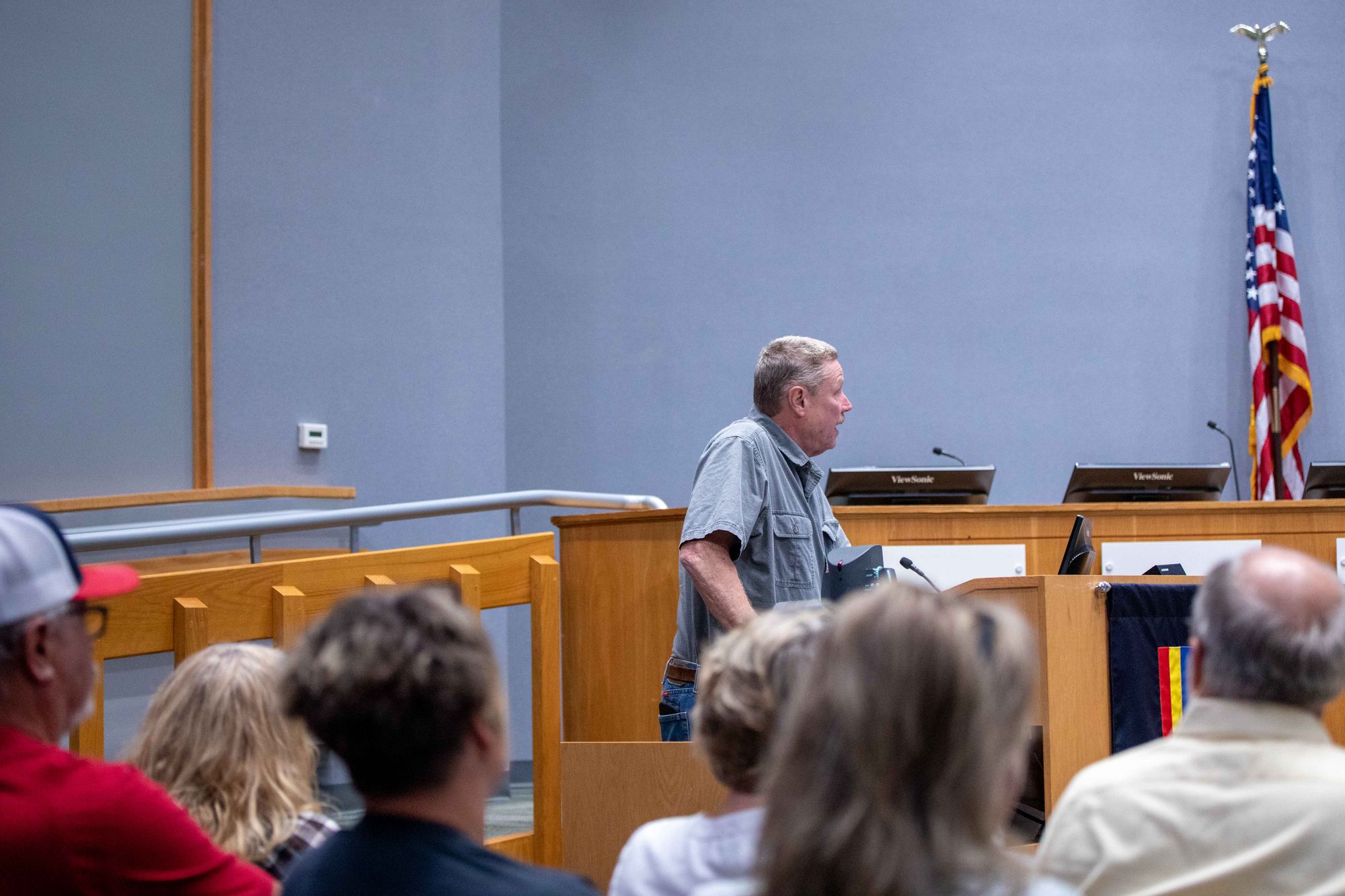
The Unified Development Ordinance, the city’s rules of engagement for building in Durham, and the Comprehensive Plan may offer solutions to all parties. But as it currently stands, the UDO is still restrictive in ways that continue to prevent more modern urban design methods. Even if it is amended, which groups of smaller local developers and concerned residents are actively working on, the market is still moving at a much faster pace than our government. This isn’t a knock on our city officials, it’s a reality of the system. But systems can be changed.
“How we would build this city” is a question we all have to ask ourselves. Not only that, but what are we willing to sacrifice to get there? Would we accept that more luxury apartments in downtown, or smaller apartments right next to your single-family home, might lead to more affordability throughout the city? What if reducing the amount of parking available meant meeting our climate and “Vision Zero” goals? The onus isn’t solely on individual citizens to make concessions, as council member Caballero seemed to suggest. The city should provide incentives through things like improved transit infrastructure (the bus is free right now, y’all!) or tax breaks to favorable developments (can they even do that?) to initiate the culture shift they desire.
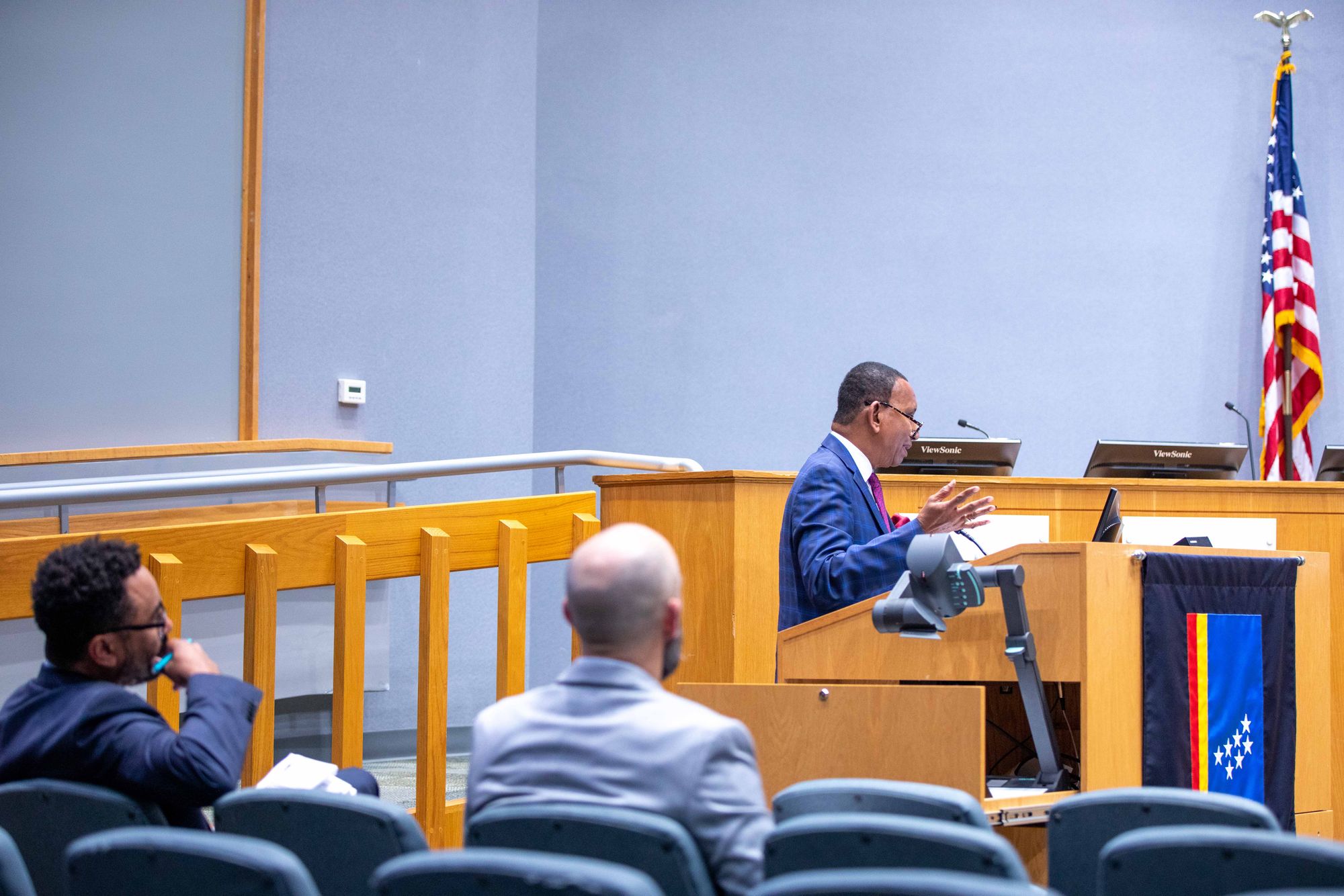
Floyd McKissick Sr. made an attempt to create his own utopia in 1969 with the founding of Soul City. “It’s like they tried to build a Wakanda in North Carolina,” said Shirlette Ammons on an episode of Far Flung with Saleem Reshamwala. The idea was that it would be a city built by the people, for the people. In an interview from 1973, McKissick Sr. said that “Soul City was an idea before the movement.” A vision was laid out even before they broke ground. So what’s our vision for a utopia in Durham, and how can we set out to realize that vision, even before the next plot of dirt has been dug?
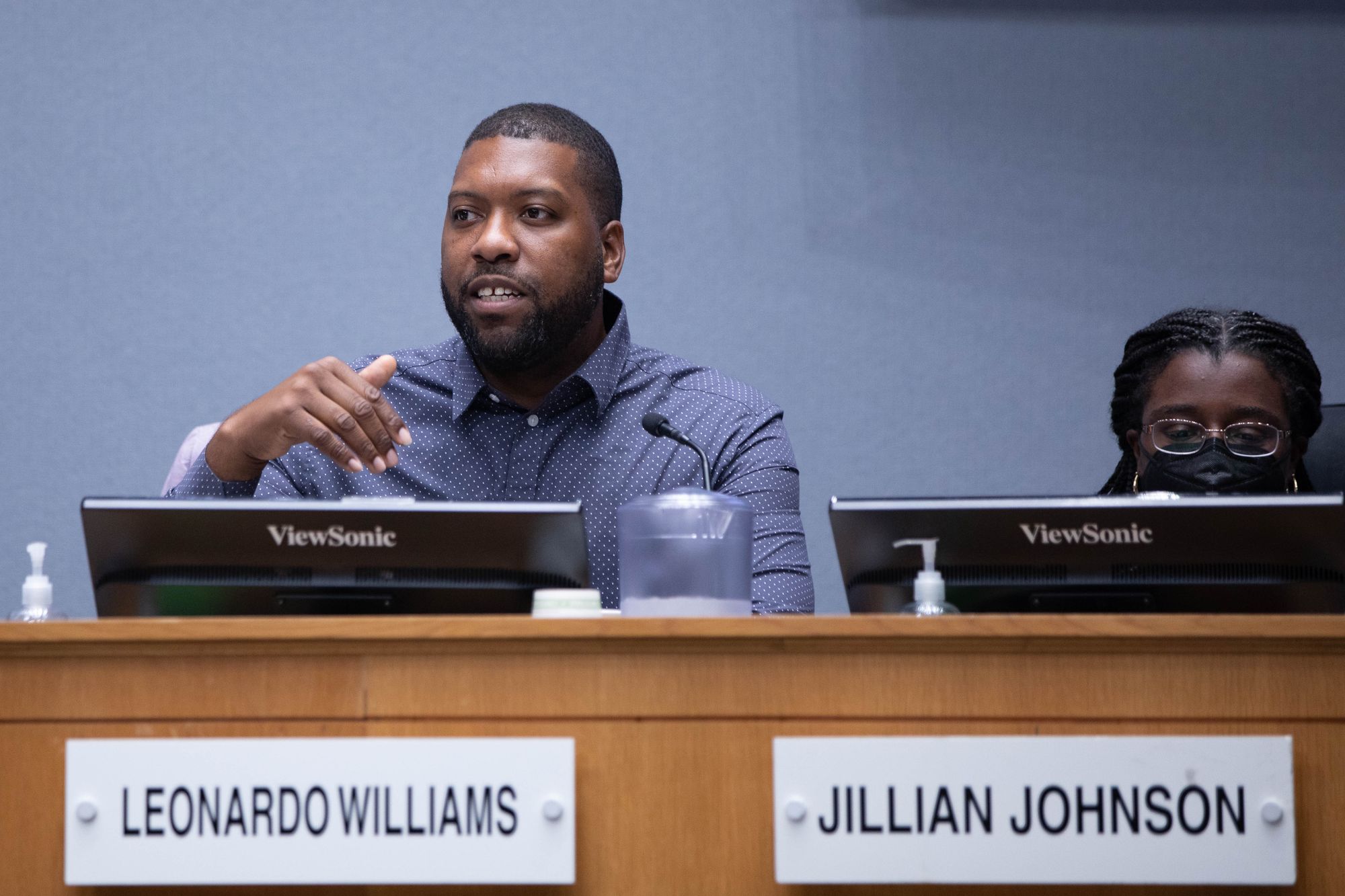
CIVICS 101
A phrase I often hear, and have probably uttered myself, is “well, why doesn’t the mayor do something about it?!” We do it at every level of government. “Why doesn’t the President fix gas prices?!” We have a propensity to blame the highest-ranking leader and assume they can move mountains at the drop of a hat.
But roughly 2,600 people work for the City of Durham, each their own part in the mechanics of our local government. In fact, our mayor is almost no more powerful than her colleagues on council. That’s because Durham runs on a “council-manager” system. Unlike a “mayor-council” system where the mayor serves as the top executive official alongside a legislative council, a “council-manager” system features a legislative council of which the mayor belongs and a city manager is hired by council to serve as the chief executive, handling daily operations and implementing city policies. As illustrated in the org chart, Durham’s city manager has three deputies, each with their own sectors of government that they’re responsible for overseeing.
When you start to drill down into who runs what, it becomes more clear that no one person has enough power to sway a decision or solve a problem alone, and that our issue might be better taken up with a department head or city manager before tweeting at Councilperson Williams for the 15th time today, especially after he called me a “narrative hijacker…”
Lol, No sir. But hmmmmm, are you a “narrative hijacker?” I actually appreciate your engagement good sir. Keep being curious! You’re all good man.
— Leonardo Williams (@LeoForDurham) September 20, 2022
ADDITIONAL ITEMS:
- My sincerest condolences to Councilperson Freeman and her family as they grieve the recent loss of two loved ones. It is not easy to mourn in public. I have a tremendous amount of respect for our civic leaders, especially at times like this. May you find peace through this difficult time and know that Durham has your back.
- We are in the midst of Hispanic Heritage Month, which runs from September 15 to October 15. Councilperson Caballero shared her congratulations and gave a brief explanation for why the celebration starts mid-month.
- Diaper Bank of North Carolina, which was founded in Durham and continues to have a significant presence here, was recognized by Councilperson Johnson. The organization supports 6,000 babies per month in Durham. You can hear more from the founder here.
Our council watch party is growing! Join us!


